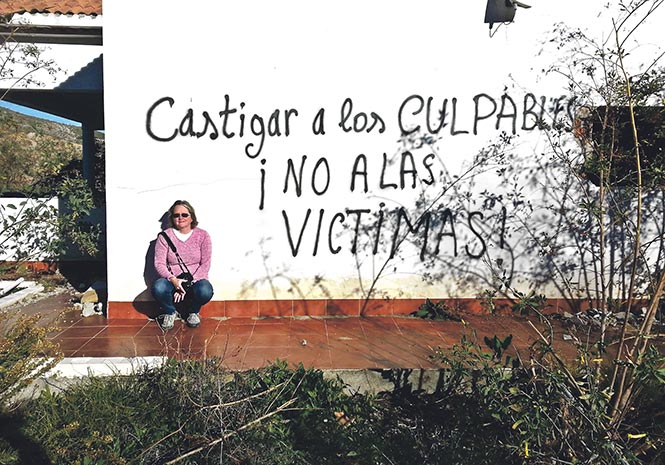
AFTER having spent the last two years fighting to finish the regularisation of houses that were built illegally and later sold to innocent buyers in the Valle del Almanzora, I have come to the conclusion that the autonomous government is not willing to finish solving this problem in a sensible way any time soon – in spite of the important steps that it initially took.
The problem is that the reform of the Planning Laws (LOUA) in 2016 excluded the regularisation of thousands of houses in the Valle del Almanzora, and I believe hundreds of thousands of houses in Andalucia. We warned them about this at the time but they didn’t listen.
This reform permitted irregular houses on parcelaciones, that is to say groups of houses sharing the same plot of land, to access services and to be registered at the Land Registry, but the reform created a sub-species of parcelación which was called an ‘asentamiento,’ that was left out of the reform.
These houses on asentamientos are condemned to a lengthy treck via the labyrinth of municipal planning because, according to the autonomous government, these houses must be transferred onto urban land via a Town Plan.
It is said that those who broke the law must not be rewarded, and that they must contribute to the urban planning costs, and that these houses must be integrated into the urban grid of the town.
Sounds good in theory, but in practice this attitude is damaging. In this system, the promoter who constructed the irregular houses and sold them to third parties, and who continues to own land on the asentamiento (as is usually the case), is graced with new urban land, multiplying its value.
Not only that, the buyers of these houses are forced to pay a large part of the urbanisation costs, that the promoter should have paid. Moreover, to integrate the asentamiento into the urban grid, the land between the asentamiento and the town centre is usually reclassified as urbanisable land, possibly awarding the promoter again if they own this land. Over and above all this some promoter will have to construct the general infrastructure and get paid for it. In contrast, the only thing we are proposing is a little bit of common sense – not an amnesty. We leave the giving of an amnesty to law breakers to others.
We are only asking for the minimum recognition for these houses, that the administration allowed to be constructed and sold to innocent third parties, so they can access services and register them at the Land Registry via what is called an AFO. At the end of the day, that which has been permitted and now cannot be demolished, must be regularised, minimising its environmental impact, and the sooner the better. And don’t be fooled, an AFO is not a legalisation, it is much less than a licence of first occupation.
Giving an AFO to these houses is not a privilege because, among other things, the house must satisfy environmental considerations as part of the process of conceding the AFO, and fees and costs must be paid. In contrast, the effect of the system devised by the current administration, and the one it wishes to maintain, isto multiply the effect of the irregularity on the environment, with new urban land and new houses, and to award the law breakers who were allowed to build these houses, something that in my opinion is neither sensible nor fair.








